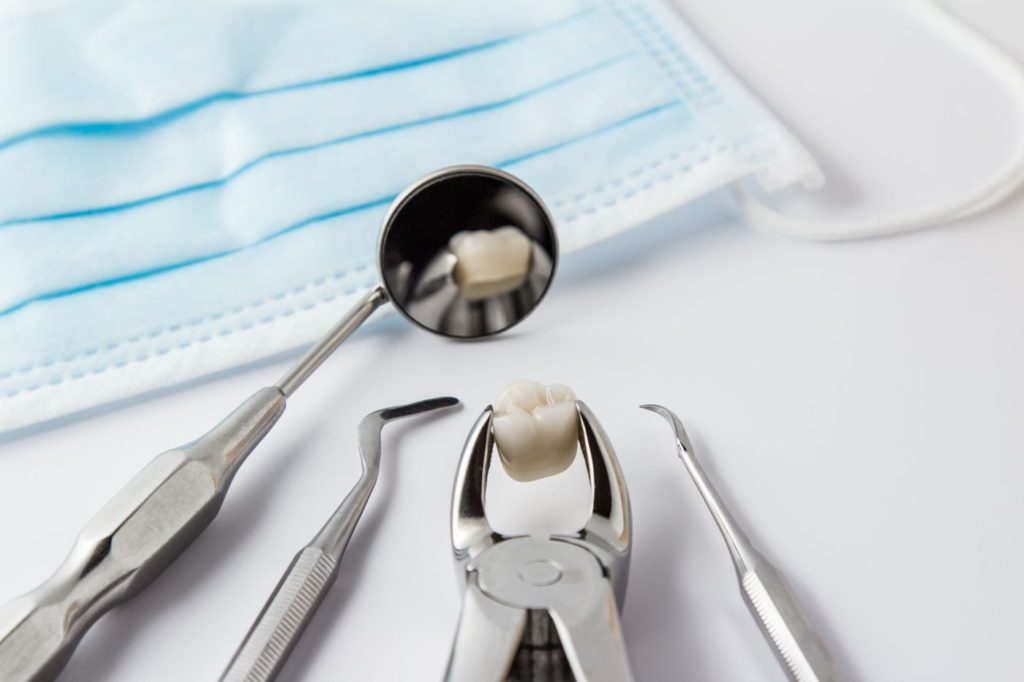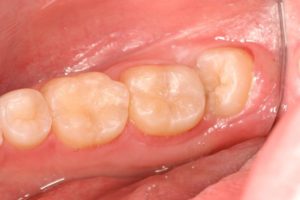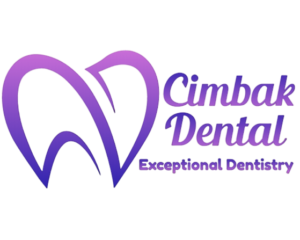TOOTH EXTRACTION
CIMBAK DENTAL CLINIC
Removing teeth is never our first choice at Cimbak Dental Clinic, Port Harcourt. It is always our final recourse when there are no other options. Our mission is to help you keep your teeth healthy and attractive. There are times, though, when a tooth is too damaged or decayed to save. When removing one tooth will benefit the health of your whole smile, our team can offer safe, comfortable tooth extractions.
When a dentist pulls a tooth, it’s known as a tooth extraction or tooth removal. Usually, it’s a simple procedure.
Teeth are not rigidly fixed to the jaw bone. Instead, they’re attached to the bone by fibers called periodontal ligaments. By carefully manipulating a tooth, our dentist can detach these ligaments and remove the tooth.

Types of Tooth Extraction
There are two kinds of tooth extraction
- A simple extraction is commonly performed by general dentists on a fully erupted or noticeably visible tooth in the mouth. The dentist uses an elevator to loosen the tooth and a forceps to remove it.
- On the one hand, oral surgeons often perform surgical extraction wherein a small incision is made into the gums to remove a tooth which has broken off at the gum line or has not come out. Surgical tooth extractions are more difficult oral surgery procedures because they involve cutting the gums and extracting the teeth from below the gumline. General dentists can also perform a surgical extraction.
Why a Tooth May Need to be Removed
People often call our office when an injury or accident has cracked or broken a tooth. Often, a cracked or broken can be fixed with a crown, or a cap over the tooth. When the damage has reached the tissue in the center of the tooth called the pulp, the tooth may require a root canal before it is crowned. However, there are times when the tooth is so severely damaged that it cannot be saved. In those cases, our dentist will recommend the damaged tooth be removed.
Dental decay is caused by bacteria that targets the enamel of the tooth and causes a hole known as a cavity. Small cavities can be fixed with a filling and larger cavities can usually be fixed with a crown. However, if the tooth is severely infected tooth and you are in pain, the dentist may recommend a root canal. If a root canal is not possible, the dentist may recommend the tooth be pulled.
Sometimes a primary tooth, or baby tooth, fails to fall out naturally. The retained baby tooth will prevent the permanent tooth from emerging properly and will need to be pulled by the dentist so the permanent tooth can grow in.
Children eagerly anticipate losing a baby tooth and placing it beneath their pillow for the tooth fairy. Most of the permanent teeth emerge during childhood but, sometimes, the jaw is too small to hold the teeth in proper alignment. The dentist may extract one or more teeth to prevent them from crowding the other teeth. This is often followed by the use of braces or other orthodontic treatment to straighten the remaining teeth.
Just like bacteria can attack the enamel of the tooth and cause a cavity, it can also target the gums, resulting in periodontal disease, also known as gum disease. As a result, the gums pull away from the tooth and compromise the ligaments that attach the tooth to the jaw bone. If the tooth becomes too loose, it can fall out or require pulling.
A third set of molars begin to emerge when a person is between the ages of 17 and 25. Because they appear when a person has reached maturity, they are known as wisdom teeth. Unfortunately, there is not always enough room in the jaw to accommodate these new molars. They can become partially or completely impacted under the gum and require removal by an oral surgeon.
Wisdom Tooth Removal in Port Harcourt
Most people have four wisdom teeth that come through the gum line during the later teen or early adult years. Their official name is “Third molars”. When there is not enough room in the jaw for these molars to push their way up past the gum line, they may cause several oral health problems. Our team at Cimbak Dental Clinic will take some x-rays to see if the wisdom teeth are causing any problems such as:
- If your jaw is too small for the wisdom teeth to properly come through the gum line
- The wisdom teeth are only partially coming through the gums
- The wisdom teeth are coming in at an angle
- The wisdom teeth are damaging the adjacent teeth
- The wisdom teeth are damaging the jaw bone
- The wisdom teeth are leading to gum infection

If any of these problems are occurring, our dentist may recommend you have the wisdom teeth removed. It’s easiest to have the wisdom teeth removed before the age of 25 because the roots are not fully developed and the jaw bone is not as dense as it will be when you are older.
If our dentist cannot perform the wisdom tooth procedure, we’ll refer you to an oral surgeon who will be able to help you.
Caring for Teeth After Extraction
Following the removal of one or more teeth, our knowledgeable team members will walk you through how best to care for your smile as the tooth extraction site heals. Everyone is different, but in most cases, we will recommend the following:
- First 48 hours – only consume liquids. Change out gauze as necessary as it becomes saturated. Use ice packs at 20 minute intervals to reduce swelling and inflammation and slow bleeding. Brush and floss teeth twice a day taking special care to avoid the extraction site.
- First week – begin eating a wider variety of foods as you feel capable. You should begin to notice a significant decrease in discomfort and sensitivity. If your pain persists or worsens after the first two days, call our team. If we’ve provided antimicrobial mouth rinse, use this as directed to aid in the healing process.
- Ongoing – if you have stitches that need to be removed, we will typically schedule this appointment for a week or two after extraction. After the first week, you should feel almost back to normal. If you’re still experiencing significant pain, please let us know.
Call Cimbak Dental Clinic Port Harcourt Today to Schedule an Exam
If you have a toothache and suspect you need to have a tooth pulled, call our office to schedule a dental exam. We’ll take x-rays, evaluate the condition of your teeth and discuss your concerns before determining whether the natural tooth can be saved and restored to health or if it needs to be pulled.
